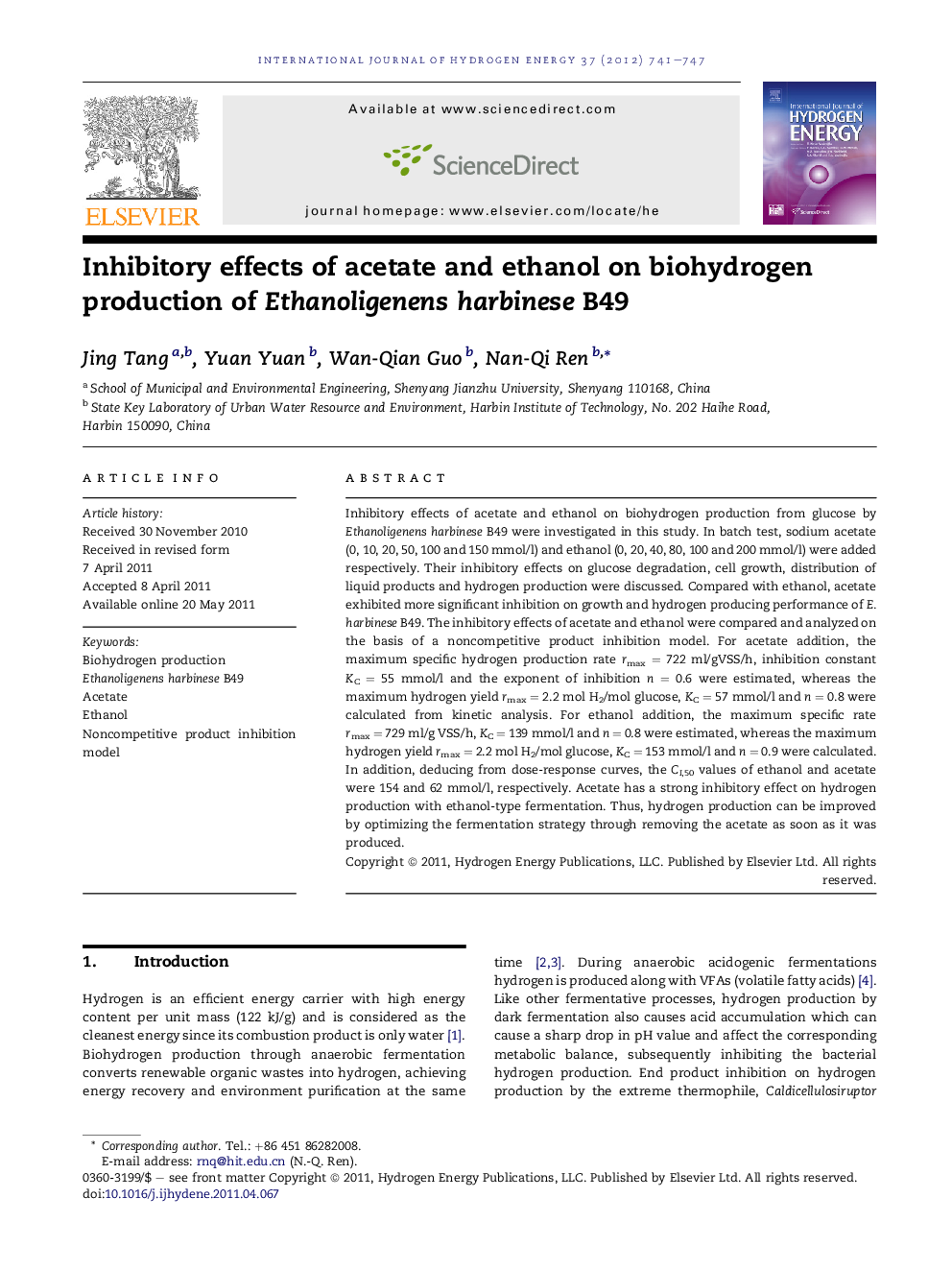| Article ID | Journal | Published Year | Pages | File Type |
|---|---|---|---|---|
| 1277190 | International Journal of Hydrogen Energy | 2012 | 7 Pages |
Inhibitory effects of acetate and ethanol on biohydrogen production from glucose by Ethanoligenens harbinese B49 were investigated in this study. In batch test, sodium acetate (0, 10, 20, 50, 100 and 150 mmol/l) and ethanol (0, 20, 40, 80, 100 and 200 mmol/l) were added respectively. Their inhibitory effects on glucose degradation, cell growth, distribution of liquid products and hydrogen production were discussed. Compared with ethanol, acetate exhibited more significant inhibition on growth and hydrogen producing performance of E. harbinese B49. The inhibitory effects of acetate and ethanol were compared and analyzed on the basis of a noncompetitive product inhibition model. For acetate addition, the maximum specific hydrogen production rate rmax = 722 ml/gVSS/h, inhibition constant KC = 55 mmol/l and the exponent of inhibition n = 0.6 were estimated, whereas the maximum hydrogen yield rmax = 2.2 mol H2/mol glucose, KC = 57 mmol/l and n = 0.8 were calculated from kinetic analysis. For ethanol addition, the maximum specific rate rmax = 729 ml/g VSS/h, KC = 139 mmol/l and n = 0.8 were estimated, whereas the maximum hydrogen yield rmax = 2.2 mol H2/mol glucose, KC = 153 mmol/l and n = 0.9 were calculated. In addition, deducing from dose-response curves, the CI,50 values of ethanol and acetate were 154 and 62 mmol/l, respectively. Acetate has a strong inhibitory effect on hydrogen production with ethanol-type fermentation. Thus, hydrogen production can be improved by optimizing the fermentation strategy through removing the acetate as soon as it was produced.
► Inhibitory effects of acetate and ethanol on H2 production were compared. ► Noncompetitive inhibition model was used to describe the products inhibition. ► Acetate was identified as the primary inhibitory factor. ► Removing acetate as soon as it was produced can improve H2 production.
